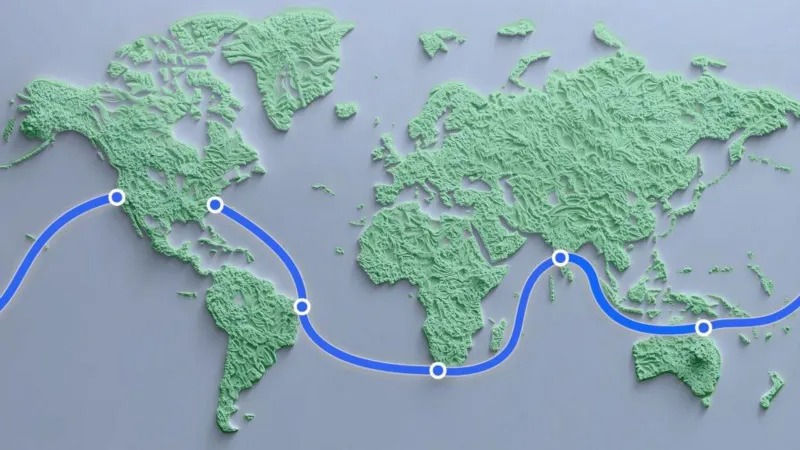G. Mudalige, Jadetimes Staff
G. Mudalige is a Jadetimes news reporter covering Technology & Innovation

Meta has announced an ambitious plan to construct a 50,000-kilometer (31,000-mile) sub-sea cable system named Project Waterworth, aiming to revolutionize global internet connectivity. The cable will connect major regions, including the United States, India, South Africa, and Brazil, marking a significant step in Meta’s efforts to expand beyond social media and into digital infrastructure. With a growing focus on artificial intelligence (AI) and cloud computing, Meta’s investment in global connectivity is expected to support its AI-driven initiatives and improve internet access across multiple continents.
As one of the largest digital infrastructure projects to date, Project Waterworth will incorporate advanced 24-fiber pair technology, providing higher data capacity than previous undersea cables. With over 95% of the world’s internet traffic dependent on undersea cables, this project is set to enhance the reliability and speed of digital communication, enabling better economic cooperation and technological advancement. The initiative aligns with Meta’s broader goal of improving digital inclusion and ensuring that emerging markets have the connectivity required to support growing digital economies.
The project reflects a broader trend where major technology firms, rather than national telecommunications companies, are taking the lead in financing and deploying sub-sea cable networks. Companies such as Google have already invested heavily in similar projects, including a planned sub-sea cable connecting Africa and Australia, as well as a $1 billion investment in new cables to improve connectivity between Japan and the Pacific region. This shift in infrastructure development signals the increasing influence of tech giants in global internet governance, prompting discussions among policymakers about market concentration and digital sovereignty.
Meta’s decision to fund and develop Project Waterworth independently highlights its strategic ambition to dominate digital connectivity. By directly integrating hardware, software, and platform services, Meta is positioning itself as a leader in internet infrastructure, further strengthening its influence in the global digital economy. This approach not only enhances the company’s ability to support high-bandwidth applications like AI and cloud computing but also allows it to maintain a competitive edge over rivals in the tech industry.
The increasing reliance on sub-sea cables has also raised concerns regarding their security and resilience. In recent years, there have been incidents of cable damage due to both accidental and intentional interference, making undersea infrastructure a key area of geopolitical tension. NATO has heightened surveillance in response to threats to critical communications networks, particularly in the Baltic Sea, while the UK has initiated discussions on national resilience against potential disruptions. The strategic importance of undersea cables makes them a potential target during times of heightened conflict or diplomatic tensions.
To address these risks, Meta has designed Project Waterworth with advanced security measures, including laying cables at depths of up to 7,000 meters and using enhanced burial techniques in high-risk coastal areas. By avoiding traditionally contested routes such as the Suez Canal and the South China Sea, Meta’s project appears to prioritize stability and minimize exposure to geopolitical vulnerabilities. Furthermore, by strengthening internet connectivity in the Southern Hemisphere, Project Waterworth may contribute to reinforcing U.S. economic influence in emerging markets, further shaping the future of global digital infrastructure.


